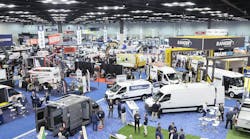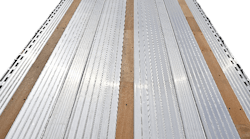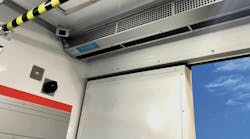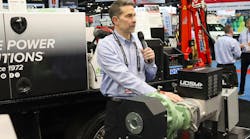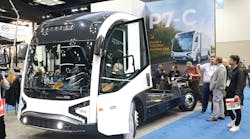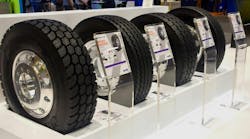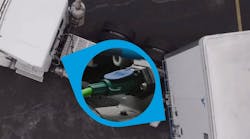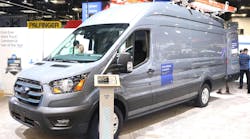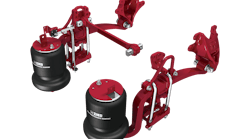Return with us now to those thrilling days of yesteryear.
It was in the early 1960s, less than 15 years since the United States and its allies had just saved the world from domination by the Axis powers in World War II. Now world peace was being threatened once again.
Yes, the Russians had just constructed the Berlin Wall, and tensions between the two postwar superpowers were such that the entire world was living under the threat of nuclear war.
But that was secondary. A new, more menacing threat was beginning to emerge, one that was affecting the very food that Europeans were putting on their tables. Yes, we are talking about cheap, hormone-infested, nonorganic American-raised chickens.
It was one thing to be overrun by Nazi tanks, but the prospect of being conquered by American chickens was just too much for Western European chicken producers to bear. Something had to be done. And something was done—a tax on the importation of American chickens.
America, of course, could not let itself be pushed around by Frenchmen who made a living raising les poulets. Shortly after John Kennedy stared down the Russians to end the Cuban missile crisis, Lyndon Johnson slapped a 25% tariff on a variety of European imports, including brandy, potato starch, and (logically) certain types of trucks.
Getting slapped with a stiff tariff should have showed those Europeans a thing or two. Sales of the pickup version of the Volkswagen minibus plummeted—but the tariff was largely ineffective. We soon removed the tax on the edible stuff long since been removed, and the tax imported trucks—the last remaining vestige of the chicken tax—has produced a variety of unintended consequences. That’s because the commercial truck industry long ago figured out a number of techniques to circumvent the tax. One way is to manufacture the truck, disassemble certain components, and then reassemble the vehicle.
The new Morgan Olson van body plant in North Charleston, South Carolina, is one of several truck body and equipment operations that owe their existence, at least indirectly, to the 50-year-old tariff. The ship-through facility opened earlier this year to install van bodies on Sprinter chassis (see story on Page 18).
Mercedes Benz USA operates a facility in North Charleston that reassembles previously disassembled Sprinter vans. The Morgan Olson plant exists to install van bodies on those chassis. Located just down the road from MBUSA, the vehicles can be conveniently completed and returned for reentry into the Mercedes freight system.
Other companies are equally adroit at rendering their vehicles ineligible for the chicken tax. Winnebago has a similar facility to turn Sprinter chassis into recreational vehicles.
Ford addressed the issue by bringing the Transit Connect in as a passenger vehicle—which is not subject to tax. Replace the rear windows with opaque panels, remove passenger seats, and voila, instant cargo van that can now be sold free of chicken tax.
And who can forget the Subaru Brat, the sort of pickup that featured two backward facing seats. But who can remember seeing anyone going down the highway sitting in one? Subaru was simply trying to get the vehicle classified as a passenger car and save the customer 25%.
General Motors’ LUV pickup and Ford’s Courier were other examples. They were manufactured by Isuzu and Mazda, respectively, as chassis cabs and equipped with pickup boxes upon arrival in the US.
When the chicken tax was implemented 50 years ago, there was a clear distinction between domestic and foreign manufacturers. Today, the world has come to our door and is building light trucks in factories all over the US. Guess who doesn’t have to pay the chicken tax.
Of course, tariffs remain on American-raised chickens. That’s why with all the changes that have occurred in the truck business over the last 50 years, we continue to spend hundreds of dollars disassembling each completed vehicle. But that’s chicken feed compared with the thousands of dollars that such actions save in tariffs.
We have talked a lot about free trade in the past few years. We have signed NAFTA and other free trade agreements over the past few two decades. It just may be time for us to let bygones be bygones.
